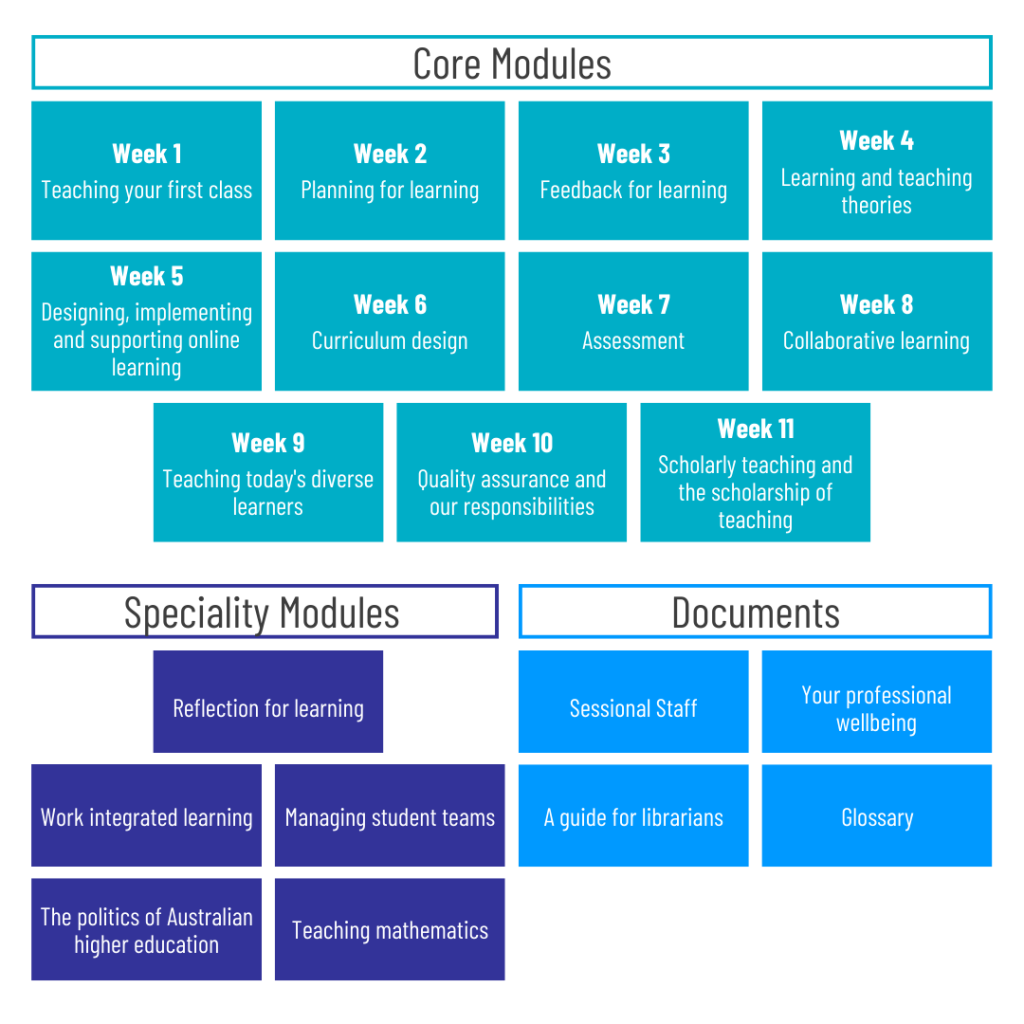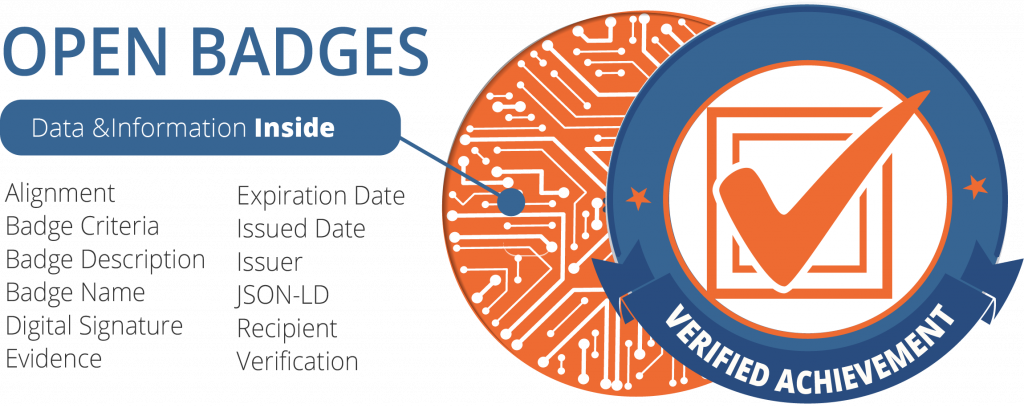TCAUE – Examples and Discussion (as at August 2022)
18 Micro-credentials in Higher Education
Many institutions have created, or are in the process of creating, micro-credentials for educators in line with discipline requirements and continued professional learning and development. Some of these offerings require subscription, some are in-house only (provider log-in), and some are made available free of charge.
Organisations such as Epigeum have been offering online training modules for higher education providers internationally since 2015. Modules are developed collaboratively by experts, and are available to providers by subscription. Modules can be customised, for example, by adding authentic learning in a localised context using tailored links (Oxford University Press, n.d.).
Australian context
Contemporary Approaches to University Teaching MOOC
The Contemporary Approaches to University Teaching (CAUT) MOOC, is hosted by CAULLT and offered through Macquarie University in 2022.
CAUT is led by Associate Professor Agnes Bosanquet and Associate Professor Marina Harvey. The MOOC was originally was developed and supervised by Associate Professor Kym Fraser from 2018-2020, and enhanced through CAULLT. It is an open access MOOC for the Australian higher education sector, designed for educators in their first few years of university teaching. The MOOC’s individual modules are used within institutional professional development by the majority of Australian providers.
The survey and benchmarking exercise (CAULLT, 2019), identified that the MOOC’s content is used through an ‘adapt or adopt’ approach and contextualised within each institution’s professional development and capacity building frameworks.
Thirty-four institutions from 11 countries have requested the MOOC content for their institution’s Learning Management System (Macquarie University, 2022). Study is self-paced in two-hour modules (micro-credentials) that can be completed over one semester (see Figure 5).

The topics of the self-paced modules included in the MOOC are in alignment with the TCAUE and could reasonably contribute to the attainment of respective credentials within the TCAUE.
There are many examples of professional development micro-credentials that could contribute to a full TCAUE Credential. For example, Griffith University has a wide range of micro-credentials, from skill credentials to micro-credentials which stack to form a Graduate Certificate in Professional Studies. Griffith issues its micro-credentials to learners using secure badging through the Credly Platform. This is based on the Open Badge Standards.
Open Badges
Open Badges (or similar secure badges) are used by many higher education institutions to provide evidence of learning, skill mastery, and levels of attainment achieved by educators who complete a micro-credential or series of stackable micro-credentials (Dinan-Thompson et al., 2021).
An Open Badge has a “method for packaging information about accomplishments, embedding it into portable image files as digital badges, and includes resources for web-based validation and verification” (IMS Global Learning Consortium, 2019, n.p.). Learners can collect Open Badges from different providers, and they control their own credentials by claiming and displaying the Open Badge on any platform. Open Badges are secure and rich in information, as illustrated in Figure 6.

Massive Open Online Course.

